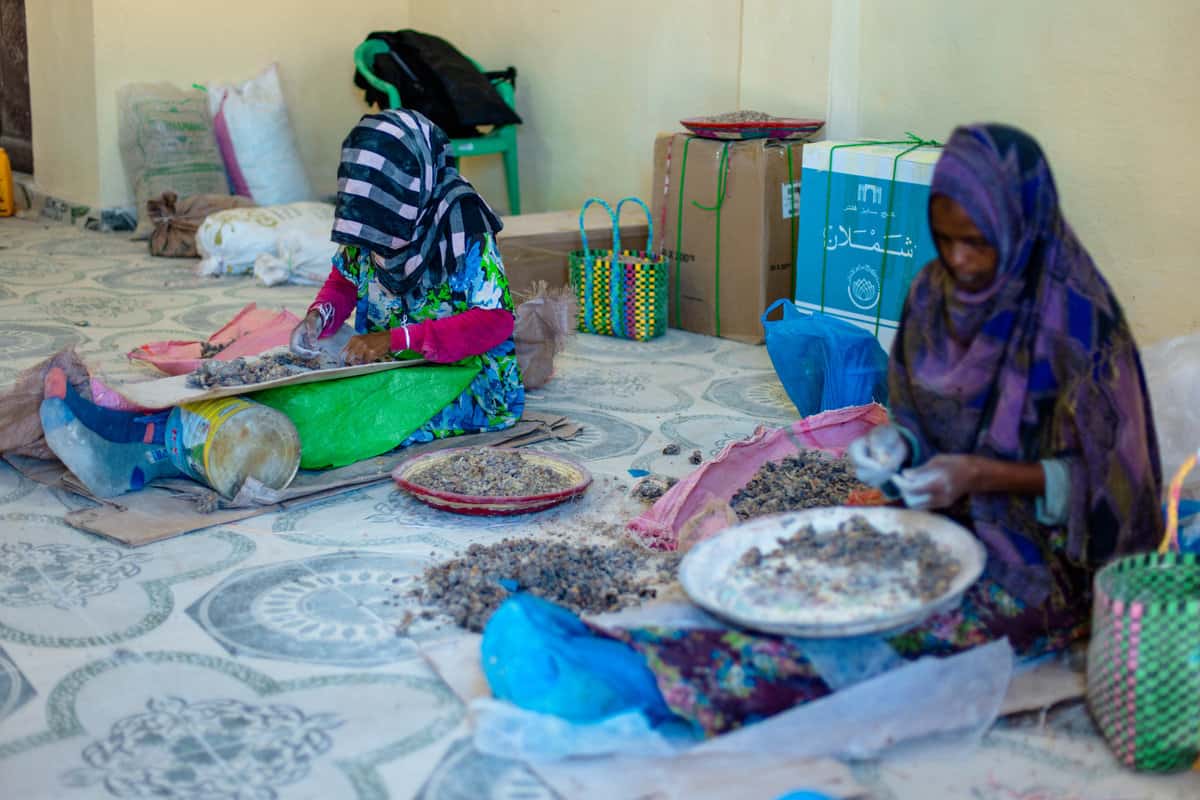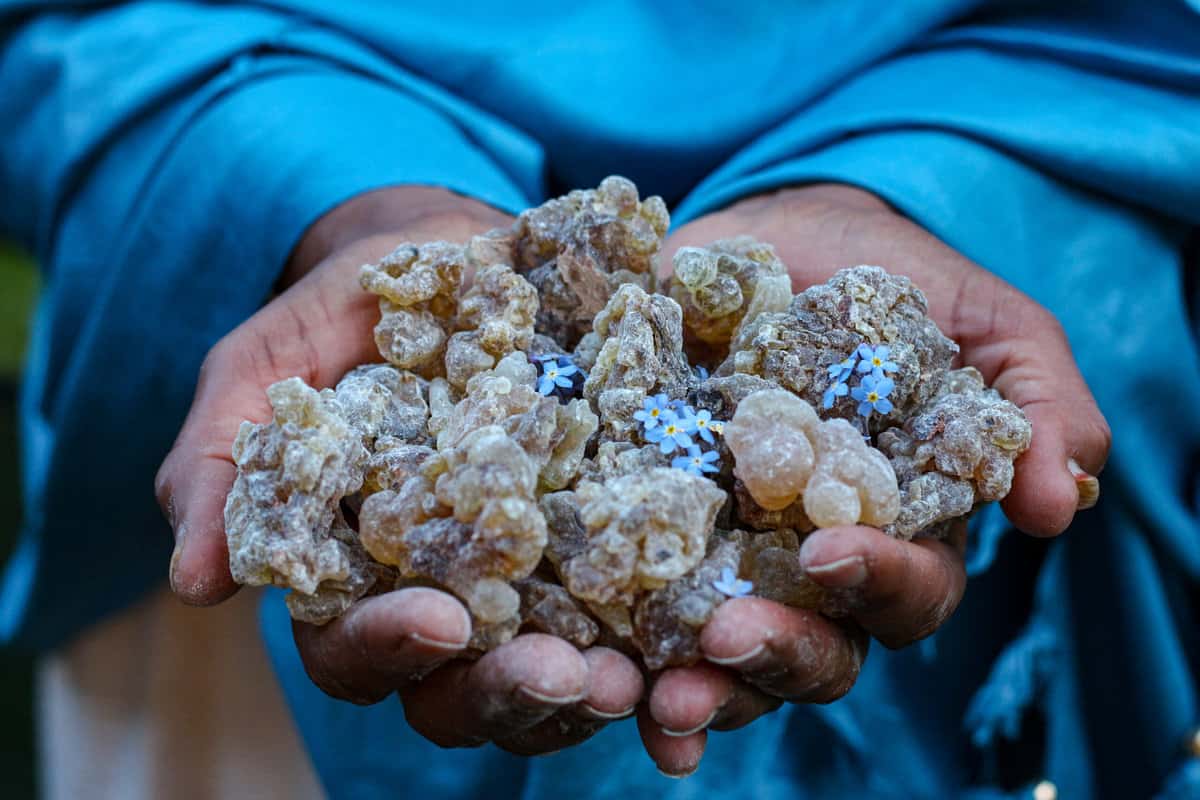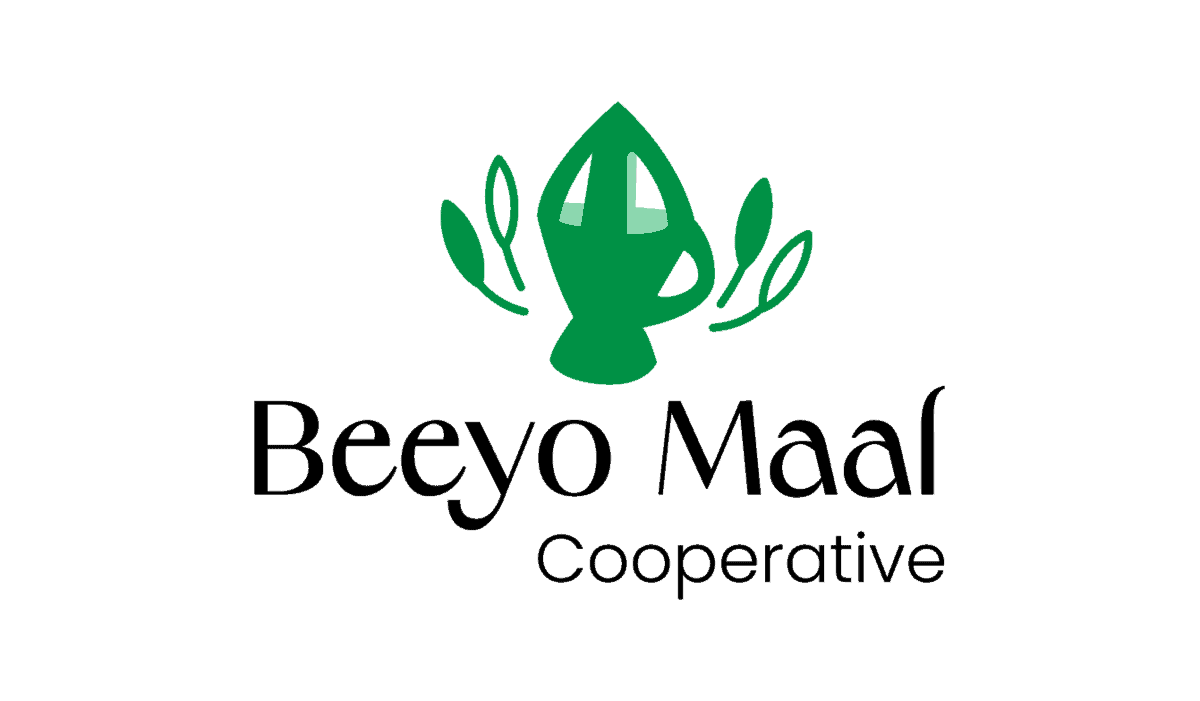
Issues surrounding the Frankincense trade.
At Beeyo Maal, we believe that it is important to address the challenges facing this industry head-on, in order to protect the environment, preserve traditional ways of life, and ensure that everyone involved is treated fairly.
Frankincense is a precious resin that is produced by the Boswellia tree, which grows in East Africa and the Arabian peninsula. The mountains of northern Somalia, in particular, are famous for producing the finest resins on the market. For hundreds of years, an entire way of life and culture has evolved around the local Frankincense industry. Traditionally, men climb the trees and harvest the resin, whilst women clean and sort the resin ready for sale.
The need for change
To this day, the rural communities often exchange their resins for goods and supplies, rather than money. This system worked well in the past but leaves them vulnerable to exploitation in modern times. Unfortunately, as international demand for Frankincense has grown, powerful local middlemen have started taking advantage of the rural harvesting communities.
Despite rising demand on the international market, these middlemen have artificially pushed down the value of resins, giving the harvesters fewer and fewer supplies in exchange. They blame the rising cost of food, but this is a lie told to increase their profits as they sell the resin on to international buyers. In reality, as international consumers began purchasing more products containing Frankincense, the financial value of the resin was increasing.
Impact on sustainability
Forcefully lowering the value of resin made the harvesters extract more from the trees in order to sustain themselves. These pressures led to the overharvesting of trees and a rise in theft and illegal harvesting. Harvesters began extracting more than the trees could handle, causing them to die. It has also led to a rise in people harvesting resin from trees that are not theirs.
The condition of women
The middlemen have also made life for the female sorters worse: lowering wages, worsening working conditions, and even subjecting them to assault and abuse. Treating women this way is not only unacceptable, but also bad for the industry, as a group of people with broad knowledge of resin is denied input into decision making and management.
The responsibility of international buyers of frankincense
Whilst it is the middlemen who have been directly exploiting the harvesting communities, the international corporations who buy from them wash their hands too easily from issues in their supply chains, claiming ignorance. They continue purchasing from these middlemen, giving them more power and authority. Despite knowing the consequences of their actions, international corporations claim to be operating sustainably in partnership with communities. They release marketing claims about community projects they have invested in. Even if these projects materialise (which is not a given), it is not a replacement for paying a fair price for the resin to the community at source.
Harvesting communities will often exchange their resins in return for promises of a school or hospital being built in the local community. However, closer examination reveals that their commitments to build schools and hospitals, or provide famine relief and training, remain unmet. In some instances, these promises were lies, in other instances, the funding was stolen by local middlemen who used it to tighten their grip on the community.
Hope for the fututre
At Beeyo Maal, we believe that what is needed is simple: The community needs to be paid a fair price for its resin – in money, not promises – and it needs to manage the sale itself, not go through exploitative middlemen who take all of the profit. We believe that by working together, we can create a sustainable and equitable Frankincense industry that benefits everyone involved – all the way to the consumer of Frankincense essential oil and products using its compound.

